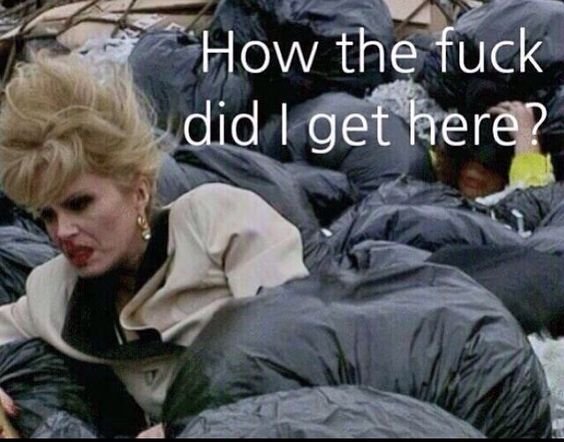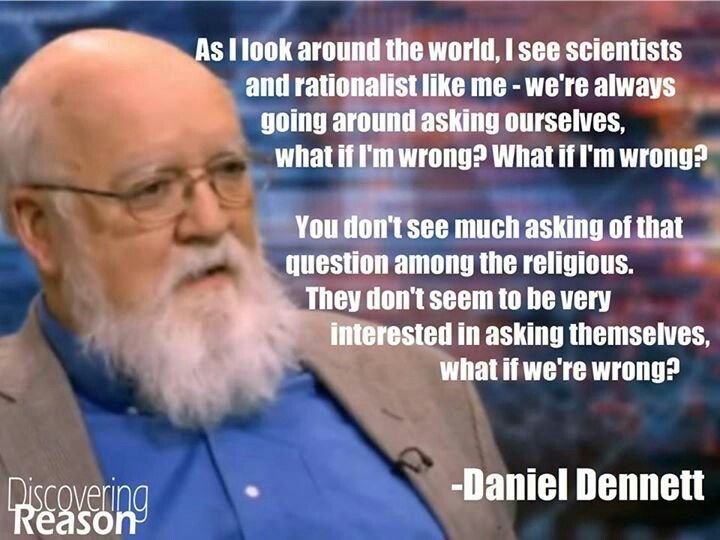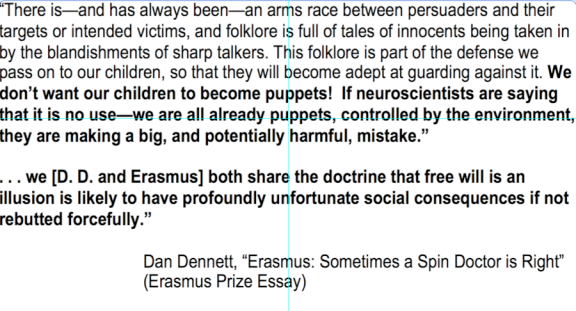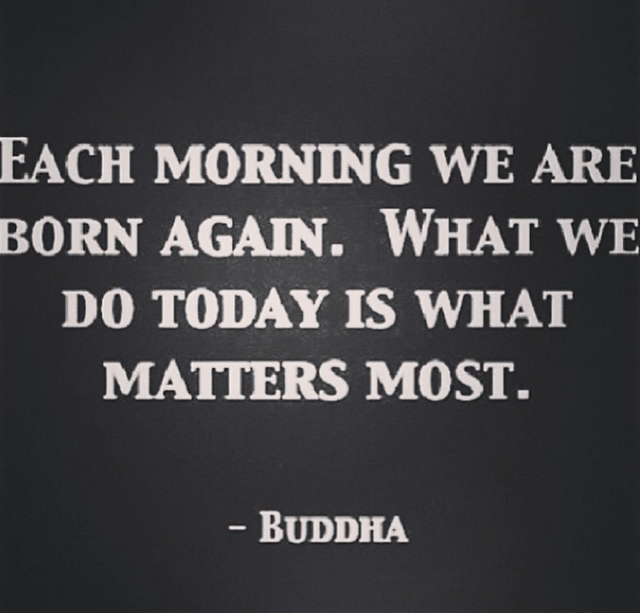This morning I found an interesting topic on my facebook feed among lots of unpleasant political debates, I do not always agree on, choose to distance and detach myself.
What if I am wrong? What if you are wrong? How the F....Did we get here?
imagecredit ; absolutely fabulous on pinterest

I felt inspired to write my random thoughts and explorations about " free will ", looking into rules of arguing intelligently. It might help some people to listen to all sides more carefully and be cautious with words, to focus on critical judgement and also question why modern men and women misunderstand each other.
There is nothing either good or bad, but thinking makes it so. ~William Shakespeare
My dear friend @limitless reminded me to read this Text by Ngak’chang Rinpoche & Khandro Déchen, HONEY On The Razor’s Edge, The Nature of Gender and Romance ( intuition and logic, chaos and pattern )
Definitely guilty of breaking these rules (sorry!). Will do better in the future ", as my FB friend Ryel said and I have to admit I also broke those rules many times.
The neurologist-philosopher Daniel Dennett's four rules and how to argue well
1. You should attempt to re-express your target’s position so clearly, vividly and fairly that your target says, “Thanks, I wish I’d thought of putting it that way."
2. You should list any points of agreement (especially if they are not matters of general or widespread agreement).
3. Mention anything you have learned from your target.
4. Only then are you permitted to say so much as a word of rebuttal or criticism. Dennett points out this is actually a sound psychological strategy that accomplishes one key thing. It transforms your opponent into a more receptive audience for your criticism or dissent, which in turn helps advance the discussion.
IT'S ALL UP TO YOU TO DECIDE! Is It ?

Daniel Dennett Presents 7 Tools For Critical Thinking and I outline just a few quotes.
1. Use Your Mistakes
when you make a mistake, you should learn to take a deep breath, grit your teeth and then examine your own recollections of the mistake as ruthlessly and as dispassionately as you can manage.
2. Respect Your Opponent
your targets will be a receptive audience for your criticism: you have already shown that you understand their positions as well as they do, and have demonstrated good judgment.
3. The “Surely” Klaxon
A “Klaxon” is a loud, electric horn—such as a car horn—an urgent warning. In this point, Dennett asks us to treat the word “surely” as a rhetorical warning sign that an author of an argumentative essay has stated an “ill-examined ‘truism’” without offering sufficient reason or evidence, hoping the reader will quickly agree and move on. While this is not always the case, writes Dennett, such verbiage often signals a weak point in an argument, since these words would not be necessary if the author, and reader, really could be “sure.”
4. Answer Rhetorical Questions
Who’s to say what is right and wrong here?
5. Employ Occam’s Razor
The idea is straightforward: don’t concoct a complicated, extravagant theory if you’ve got a simpler one (containing fewer ingredients, fewer entities) that handles the phenomenon just as well.
6. Don’t Waste Your Time on Rubbish
Dennett’s sixth point expounds “Sturgeon’s law,” which states that roughly “90% of everything is crap.
7. Beware of Deepities
A deepity is a proposition that seems both important and true—and profound—but that achieves this effect by being ambiguous.
The Philosophy of FREE WILL, A Concept of Illusion and Tools for Thinking

Intuition Pumps And Other Tools for Thinking Hardcover – May 6, 2013

In this episode of the Waking Up podcast, Sam Harris speaks with philosopher Daniel Dennett about free will. Published on 6 July, 2016
Last not least read a very influential book from 1994 and watch this film
Darwin's Dangerous Idea(Documentary)
Read and download the pdf : The Origin of Species
Movie Synopsis:
Charles Darwin’s theory of evolution sent shockwaves through the nineteenth century world, but its impact has continued to be potent and widespread – in society, religion, politics and science. Recounting some of the experiences which shaped Darwin’s thinking during his famous voyage on The Beagle and explaining how the theory broke out from the world of science, Andrew Marr tells of the impact of this revolutionary idea and how it came to challenge so many aspects of society.
A helpful moral to learn from all those observations, when you want to criticise a field, a genre, a discipline, an art form. Do never waste too much of your time and hours hooting at all the crap! Go after the good stuff or leave it alone.

To finish my article I will mention my favourite and inspirational friend I do have wonderful debates and intelligent arguments with, hoping he will not be upset to publish our privat conversation and his valid points.
by @limitless : "Reality is ambiguous and more complex than anyone can know. This is one of the important issues that Buddhism tries to deal with. I look at Trump and I look at the protestor and I can see that both sides genuinely believe that they are doing what's best for humanity, but both sides have inaccurate perceptions of reality. Humans generally have inaccurate perceptions reality, which is why we have so much dialogue, debate, and conflict "
This is another great podcast to listen to.
I don't think any individual can be blamed. The trend has been going this way for the past hundred years.
I think all humans naturally have sense of good and evil, but through focusing too much on the narrative of one side and ego attachment to our own experiences, we lose sight of what important, and that ignorance brings about evil acts.
What I see is a lot of ignorance, hate and fear on both sides of any issue. I'm trying to really detach myself from identifying with any group and just be mindful of behaving according to the right basic principles for myself. That is the best way to keep sanity.

I LOVE THIS :
When your inner critic acts out, silence your mind and say
1. So what? .....So what if you think that? That doesn’t mean it’s true.
2. Who cares? ......You think your judgments means something to me? They don’t!
3. Big deal! ......Oh seriously, big deal! Really, big f’n deal!
4. Why not? ........Why shouldn’t I do this? You’re telling me I can’t? I won’t? I’m not worthy of it? Why not? I’m going to continue doing this anyway, because I can! No matter what you say, I’m going to just keep diving in.
Yours
Mammasitta
Follow on Twitter @silvieinbali

